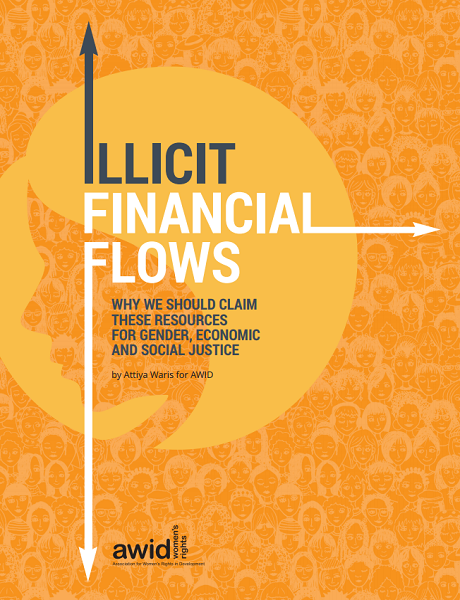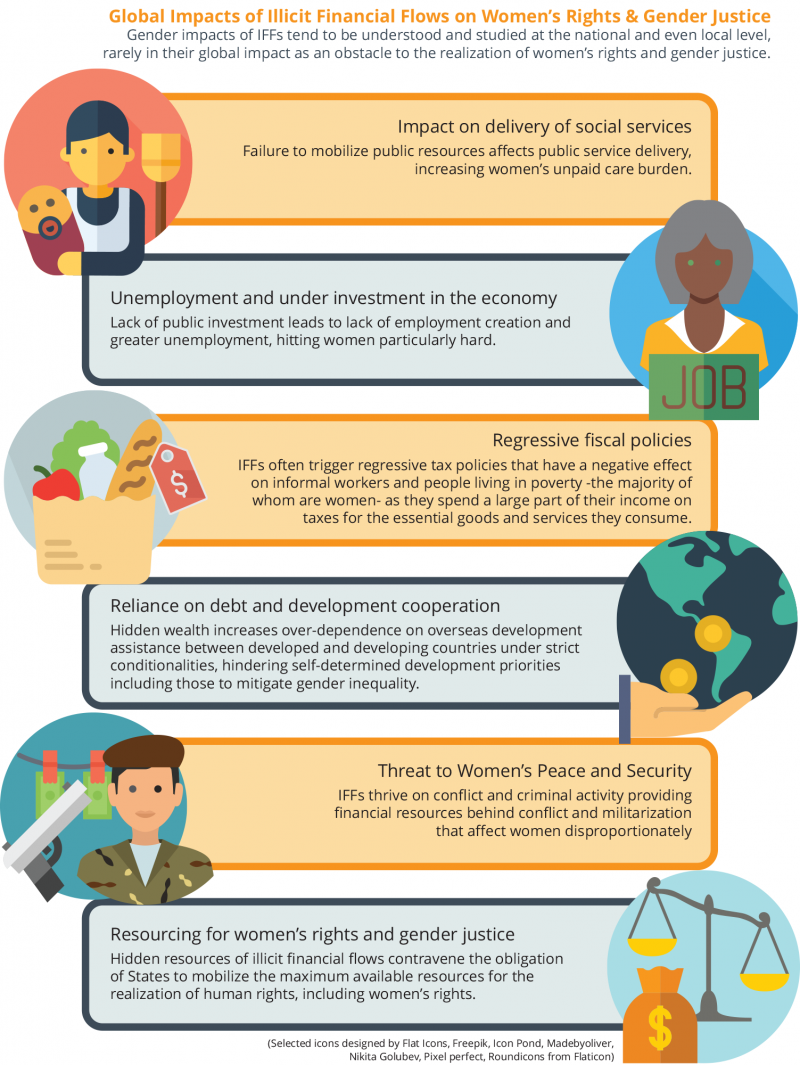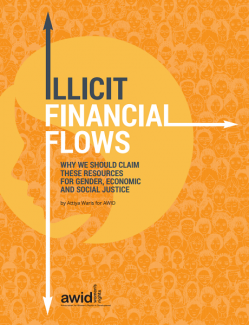
The growing dominance of international financial markets and institutions in defining global economic policies has resulted in the capture of people’s power in the interest of global elites and big corporations.
This policy brief will explore the following three issues:
- The basic concept of illicit financial flows (IFFs) and their disproportional gender impact, in relation to the drain in developing countries of critical resources, for the advancement of women’s human rights
- The current legal and political frameworks that allow multinational corporations to benefit from tax abuse to the detriment of people and planet
- Policy recommendations, from a feminist perspective, on how to demand transparency and corporate accountability in order to curb illicit financial flows
This brief is an invitation to advocate for stricter financial regulation, and an end to corporate privileges that are detrimental to people and planet. It also offers initial policy recommendations to support feminist and gender justice organizations, as well as policy-makers, in influencing relevant decision-making spaces or to potentially complement and deepen the already existing engagement and positions.
A sneak-peak in the report
The concept of illicit financial flows (IFFs) is characterised by a lack of a unique consensual definition. Alex Cobham, for example, explains the difference between a narrow and wider definition as follows:
“There are two main definitions of illicit financial flows (IFF). One equates 'illicit' with 'illegal', so that IFF are movements of money or capital from one country to another that are illegally earned, transferred, and/or utilized. This would include individual and corporate tax evasion but not avoidance (which is legal), and other criminal activity like bribery or the trafficking of drugs or people.
The other relies on the dictionary definition of 'illicit' as 'forbidden by law, rules or custom' – encompassing the illegal but also including the socially unpalatable, such as the multinational corporate tax avoidance”.
What causes IFFs?
The contexts that allow IFFs to take place are numerous and interlinked but can be explained in four central issues:
- An exclusionary global financial system
- Shrinking political space to shape national tax policies
- Tax havens or secrecy jurisdictions
- Low levels of state resources
The disproportionate impact of IFFs on gender justice
Gender impacts of IFFs tend to be understood and studied at the national and even local level, with scarce literature that focuses on the global impact of IFFs as an obstacle to the realization of women’s rights and gender justice.

Policy recommendations for advocacy
Increased public attention builds momentum for feminists, social movements and tax justice advocates to pressure for the transformation of the global financial system.
We offer below a set of seven policy asks as a contribution to growing advocacy efforts:
- Address IFFs as a violation of human rights and women’s rights
- Ensure multinational corporations pay their share
- Support the establishment of a United Nations intergovernmental tax body
- Promote transparency and gender-sensitive data gathering
- Promote tax justice through progressive fiscal policies at the national level
- Ensure participation of women’s rights organisations, social movements and progressive civil society broadly
- Stop the impunity of criminal activities associated with IFFs and ensure accountability
